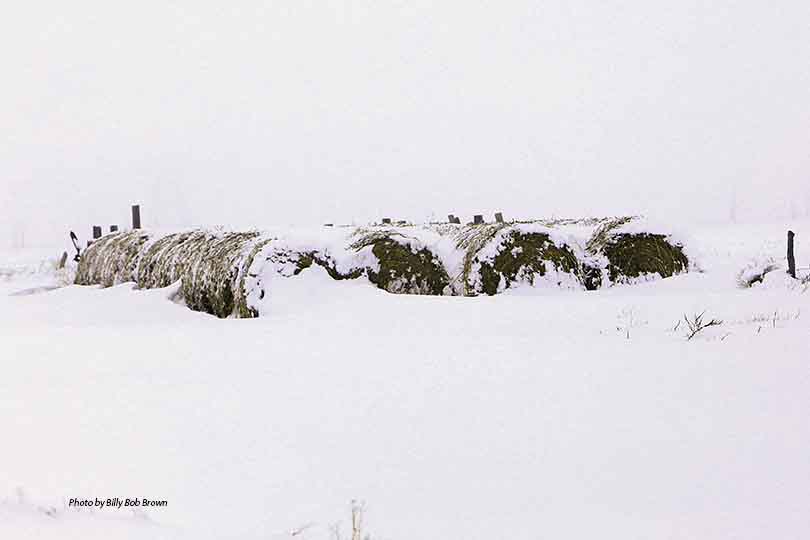A storm that dropped multiple inches of snow across the Plains area of Texas has delivered a powerful punch to the heart of the Texas dairy industry.
Texas dairymen from Lubbock west to Muleshoe and north to Friona lost many young and mature dairy cattle. The Texas Association of Dairymen (TAD) estimates that five percent of mature milking cows were lost in the storm. An unknown number of calves and heifers also were lost.
The impacted area includes half of Texas’ top milk-producing counties and is home to about 36 percent of the state’s dairy cows.
The loss of cattle will lead to a reduction in the state’s milk supply, financial losses for dairy farmers and those involved in the dairy industry, as well as the emotional impact of farmers losing their animals.
“Like all agriculture, dairy producers always operate at the mercy of Mother Nature,” Darren Turley, executive director of TAD, said. “With Goliath, she dealt a particularly harsh and costly blow to the area’s dairy producers, from the death of thousands of livestock they spend so much time caring for to a loss of milk production both over the weekend and in the future.”
Dairy farmers are now tasked with finding a way to dispose of the cattle as they continue to access their losses.
“The ordinary methods for disposal cannot handle the volume of deaths we are seeing from this storm. The Texas Association of Dairymen is working with the Texas Commission on Environmental Quality and other agencies to determine how the animals can be disposed of both quickly and safely,” Turley said.
TAD is working with the governor’s office, the Texas Department of Agriculture and other agencies to determine whether financial assistance is available to impacted dairymen.
Turley warned that the storm will have a lingering effect on the state’s milk supply. During the storm, weather conditions and road closures kept dairy employees—who normally milk the animals twice a day—and tanker trucks, which transport the milk from dairy to processor, from reaching farms. Not only were hundreds of loads of milk ready for processing wasted, but, on some farms, cows went almost two days without being milked, Turley said.
“When a dairy cow goes that long without being milked, her milk supply starts to dry up,” Turley said. “That means the dairy cows in this region will give less milk for months to come. Less milk going to market will be felt by consumers, as well as by dairy farmers.”
The U.S. Department of Agriculture Farm Service Agency (FSA) has issued a public service announcement that its FSA offices are available to help livestock owners who have suffered a loss due to the adverse weather.
Livestock owners are encouraged to contact their local FSA office for additional details about the livestock indemnity program.

